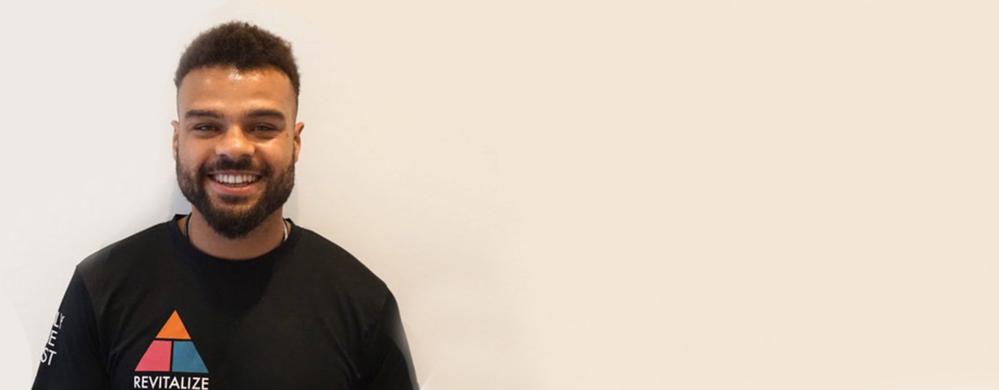To mark Black History Month we're celebrating the achievements and contributions of some of our UCO Community.
Today we talk to Elliott Reid, UCO alumnus, osteopath and owner of Revitalize Health and Fitness, a multidiciplinary clinic in Gravesend. Elliott was a finalist in the Entrepreneur Rising Star category for the 2017 Black British Business Awards.
Tell us a little about your route into osteopathy...
I have been fascinated with health since around the age of nine. My sister was embarrassingly a lot more athletic than me so I buried myself in books to gain insight as to how to become stronger, faster etc. After five years of boxing, however, my back was playing up to the point I couldn’t throw a punch. An osteopath had me ready for a fight within three days. This planted the seed and when it came to applying to university, I knew I could apply my creative thinking and passion to osteopathy. Around this time, I had two friends died from cancer at the young ages of 17 and 18. It hit home that time is very precious. I want to spend my time helping people live the lives they choose, with health catalysing that rather than creating a barrier. This is why we have a pain clinic, mental health clinic and fitness studio under one roof.
Tell us a little about your time at the UCO. What were your personal highlights?
My biggest highlight was learning how to learn. Osteopathy, as a philosophy challenges students to balance complex systems simultaneously. It challenges the students to see the small and the big picture. The utility of this philosophy is never-ending. I apply it every day.
What do you most enjoy about being an osteopath?
I love guiding people. If I am frank, I think many medical practitioners (osteopaths included) get in the way of their patients. Many patients just need be to told that “this is a challenge you are worthy of”. Accumulating enough of these challenges creates amazing results, epiphanies and confidence in patients. I love being the guide in their hero story; of triumphing over a threat which previously looked unbeatable.
What qualities do you think make a good osteopath?
The osteopath needs to see the future version of their patients which the patient cannot see or has forgotten. The osteopath then needs to backwards engineer that path to success. I.e. you have internal knee inflammation and can barely weight bear, but you want to run a marathon in six months…. ok these are the steps we need to take to get there. The osteopath might need to envision a better diet, routine, mental approach etc and then question how to get the patient to see that same picture.
What is next for you? What are your plans and ambitions for the future?
I am slowly reducing my hours of treatment to commit more time to building the other components of the clinic. From there I have been asked to use my knowledge of African history by the diaspora and by those who want to help the diaspora. I am currently writing an African history curriculum for schools for use during Black History Month, a range of historical novels featuring African heroes which I intend to evolve into a “marvel-esque” universe of African heroes for a comic book script.
What do you think could/should be done to encourage more black people into the profession?
Really simply:
- more effective evidence-based practitioners. The “Cult” of osteopathy needs to be abandoned for an effective version. Effectiveness cuts through cultural norms. You can’t argue with effectiveness.
- advertise osteopathy aggressively, and to all communities,
- the patient base will then grow and naturally be more diverse, and
- those patients then become potential practitioners.
But more insight is needed as to the barriers of entry into the profession. It is majoritively a self employed existence. To some, this is too uncertain.

